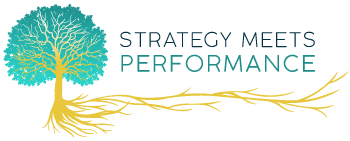By Dr. Sherry Nooravi [Part 4 of 6]
Before becoming CEOs we know and admire, San Diego’s Most Admired CEOs* (as identified by the San Diego Business Journal) had challenges along the way that pushed them out of their comfort zones and helped define their values. Following are three lessons on how rejecting their comfort zones helped them grow.
Lesson #1: Know Who You Are and Follow Your Passion
Prior to becoming the CEO at Peregrine Semiconductor Corporation, Jim Cable worked at a company where he had to shut down an operation and lay off a lot of people, an activity that helped crystallize who he is. “I did not particularly find it enjoyable to shrink a company,” he said. “When I came here (Peregrine Semiconductor Corporation), it was different; I was building. I learned I’m a builder, not a shrinker. Growing something is what flips my switch.”
Bob Kelly, CEO of the San Diego Foundation, also learned the importance of working in a job that’s your passion. When he was the executive director of the American Cancer Society, he realized he was in a special role because there was no other director in San Diego. People’s lives depended on him and he realized he needed to be known as “Mr. Cancer” by learning everything he could and being at the leading edge. “Don’t look at it as a job,” he said. “You have to look at it as an incredible passion. Every job since then has been like that.”
CEO of Stone Brewery, Greg Koch’s story has more to do with sticking to the values that were important to him. He said in the early days of the business, “when we were bleeding money,” he would go into a bar on a sales call and the owner would say in order for him to purchase beer, he wanted 1 free keg for every 5 he bought, free t-shirts and pint night giveaways. Koch said if he made this deal with the most popular place in town, he’d be able to tell other potential buyers that he was at “Joe’s,” but he didn’t believe in doing business this way. He and his partner refused the sale, even though they desperately needed that account. “Very painful no’s were good for us,” he said. “The difference is adhering to the philosophy. We stuck to our core philosophies and ethics.”
These CEOs have not only demonstrated that sticking to your values is a key to success, they also push themselves out of their comfort zones in their pursuit of success. They realize that being uncomfortable isn’t always a bad thing; on the contrary, stretching yourself can be the right way to achieve unprecedented results.
Lesson #2: What Comfort Zone? (Get comfortable with discomfort)
These passionate CEOs make sure to review their progress in their jobs on a regular basis and challenge themselves to grow. They avoid being too comfortable in the present and ensure they’re constantly evolving. They realize that change is a constant whether it is in the economy, in their industries, in technology or among their customers — so it makes no sense to get entrenched in a comfort zone.
Tim Caulfield (former CEO of American Internet Services) said he did a personal health check one afternoon in 2009 and after going through his “internal report card,” he decided he wasn’t having fun or enjoying his work at the billion dollar company where he had COO responsibilities in 2009. He left and founded a consulting firm, which lead to his position at AIS (he has since moved on).
“I could have continued on the treadmill, but it was not taking me where I wanted to go,” he said. “It would have been easy to stick with nice paychecks and not worry about it. For most senior executives, it’s not a job; it becomes ingrained with who you are and what you do. If you’re not putting in 150% of effort, you shouldn’t be in your role. You should get up and be hungry and ready to make a difference.”
Caulfield says he always believed in reaching for the next opportunity, even if it was reaching beyond his capability. “Some people will say, ‘I can’t do that job, I’m not qualified.’ I’ll say I can do it,” he said. “I’ve always been willing to take that next chance.”
Joanne Pastula (CEO of Junior Achievement) notes the importance of not just hard work and focus, but more importantly being agile and not rigid. “That helped me when I made the transition from getting a teaching credential to working in a creative world of no rules, then back to a structured corporate environment before coming to Junior Achievement 14 years ago,” she said. “You have to be an entrepreneur and figure out what you need to do and how to do it…you just figure it out. I love situations where they say, ‘Things are a mess,’ because I know I’ll figure it out.”
They follow their values and they push themselves out of their comfort zones – the third lesson helps bring it all together. They realize that they need to empower others in order for the company to grow.
Lesson #3: Let Go of Control to Grow
CEO of Pacific Building Group’s Greg Rogers learned about the business growth cycle by starting out from the basics as a drywall hanger who worked for someone until the business closed. He started his own company and performed all the duties until he was overwhelmed.
“I just kept adding balls until I couldn’t juggle them anymore,” he said. “I was in a juggling exercise and realized that good companies and growing companies can’t be built by one person. If you want your business to grow and succeed, you have to trust other people to do some of those things. It has to be a team effort and you have to engage the right people. At one time, I thought my company would go away after retirement; now I’m seeing that I’ve created something worthwhile that will carry on.”
Reality Check: Are You Living in Your Comfort Zone?
I recommend taking time to recharge so you can reflect on what you’d like to achieve in your personal and professional life. Recharging can include taking time to exercise, spending time with your family, meditating, writing in a journal and playing sports. These are all examples of activities that give your brain a chance to rest and can help you surface your deepest desires.
Questions to ask yourself include:
- Do I have a nagging feeling that I can achieve much more in my life? Am I avoiding doing something about it because of a fear of risk?
- Are there decisions I’ve made about my life and career that I’m not happy or comfortable with and want to change…but just haven’t?
- Do I tell myself that no one can run the company as well as I can? Am I performing tasks that aren’t strategic and not helpful for the company’s ultimate growth?
*Welcome to the CEO Corner, a special series featuring the best practices of San Diego’s Most Admired CEOs. The research articles are based on the themes that emerged from the in-depth interviews Dr. Sherry Nooravi conducted with the nine winners of San Diego’s Most Admired CEO Awards (as identified by the San Diego Business Journal). Several of the CEOs interviewed have moved on from their companies, continuing their leadership elsewhere. These CEOs are Larry Anderson of Tri-City Hospital, Tim Caulfied of American Internet Services and Gary Rayner of LifeProof.




